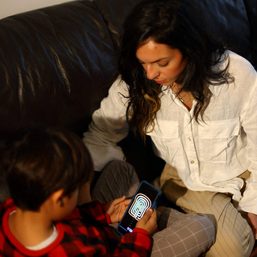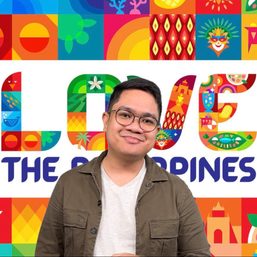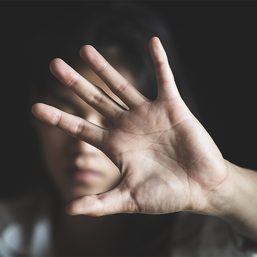SUMMARY
This is AI generated summarization, which may have errors. For context, always refer to the full article.
![[Dash of SAS] A case of sexual harassment in the advertising industry](https://www.rappler.com/tachyon/2021/10/ad-agency-sexual-harrasment.jpg)
A few weeks ago, advertising executive Deng Tee used Facebook to disclose an incident of sexual harassment involving another advertising executive.
Tee’s disclosure set off an avalanche of chain events. Other women shared similar incidents of sexual harassment involving the same advertising executive. Separately, women also came forward with their own encounters of sexual harassment – either as a witness or a victim-survivor – involving various men in the advertising industry.
The accused responded by slapping Tee with a libel suit.
Advertising regulatory body 4As engaged women’s rights group Gabriela to conduct an investigation and provide a “safe space” for women to report sexual misconduct in the workplace.
Speaking about the women who have come forward in the preliminary stages of their investigation, Gabriela secretary general Joms Salvador, said that the culture of rampant sexualization in the advertising industry has long been covered up.
How did we get here and where are we going?
Tee’s experience is yet another case of sexual misconduct that was made public on social media. Almost four years since #MeToo morphed from a hashtag to a movement that unleashed years of pent-up silence and exposed the staggering extent that sexual violence is endemic, occurrences of sexual misconduct continue to be disclosed on social media. This is what that tells us about the cultural intersections of sexualization, impunity, and the patriarchal systems that allow it.
- In a culture of sexualization, sexual harassment and misconduct have long been normalized.
Gabriela’s finding of a culture of sexualization is an affirmation of what we already know.
By now, a multitude of sectors has been rocked by allegations of sexual harassment and misconduct: music, arts and literature, academic institutions, and leading policy-making government institutions like the National Economic and Development Authority (NEDA).
We have become familiar with this cycle: public disclosure followed by public outrage. Peripheral social reactions that include victim-blaming and slut shaming, distancing from or defense of the accused, and the occasional men who feel that standing up for women’s rights requires a righteous statement that they have never been tainted by accusations of sexual misconduct.
Two things are missing in this cycle. One is an apology or any similar form of remorse from those who are accused or implicated. To be clear, this is not to conflate an apology with an admission of guilt but more as an act of contrition – an acknowledgement of introspection and reflection.
Second is any concrete change or response. In one government office, for example, the complaint of sexual harassment was still “under review” by the time that the accused came up for mandatory retirement.
Instead, we see a hostile environment where victim-survivors face retaliation in the form of victim blaming or libel suits. Implicated institutions issue perfunctory motherhood statements to mollify and muzzle the public outrage but do little in advancing ways to chip away at the sexualization, sexism, and misogyny that is so deeply embedded in our everyday lives that we have come to see it as normal.
Consumer research thinktank Mili.eu surveyed 4,000 working professionals in Malaysia, Singapore, Thailand, and the Philippines and found that at least three-quarters of respondents in all countries, with the exception of Singapore, had encountered workplace sexual harassment in the past five years.
Among the different forms of sexual harassment and misconduct, jokes of a sexual nature were most common. However, the research also indicated high responses for “prefer not to say.”
These workplace experiences amplify what we see and experience on a daily basis. The catcalling on the streets from strangers. The lewd comments justified as “jokes” by colleagues, relatives, and friends. The physical and verbal violation of our personal space in a sexually charged way that is meant to intimidate, cause discomfort, or assert one’s power and superiority over another.
- Many of those who have experienced harassment feel that it would be futile to report incidents of sexual misconduct.
The number of disclosures on social media should prompt us to ask why people, most of whom are women, are compelled to make their pain and shame public on social media.
For many victim-survivors, punitive action is not always the end goal.
“The mere act of being able to speak about their experience is enough…and if in the process they could help other victims or potential victims of reported sexual harassment — to them (victim-survivors) it is already enough,” Salvador explained in an interview with trade publication Campaign Asia.
Those looking for legal remedies or concrete actions know that the uneven application and understanding of laws will make the struggle hit or miss.
By law, the Philippine National Police (PNP) should have a women’s desk in every precinct. But, as we have seen from “anti-rape” posters that they have produced, the PNP is not above victim-blaming.
The same mili.eu research I cited earlier showed that victims most commonly turn to their friends to talk about their experiences of sexual harassment at work. For those who did not report incidents, the most common reasons included the belief that no action will be taken, and that the lack of physical evidence will not work in their favor.
- Sexual morality is a duty for women. For men, it is a choice.
Many well-meaning companies speak about having workplace policies that promote a culture of family. However, a “family culture” is not a deterrent to sexual misconduct, sexual discrimination, and maltreatment of women and gender-diverse individuals.
Sexual violence lurks in the chasms of power and strikes in the dark corners of impunity.
Corporations, academic institutions, and government institutions must invest in programs to educate the people in their organizations about what behaviors constitute sexual misconduct, the aspects of consent and body autonomy, and the principles of gender inclusion.
4A’s engagement with Gabriela is a positive start in untangling normalized sexist behaviors and forming interventions that recognize and understand the needs of victim-survivors. However, I would say that to unlearn the sexualized norms that have allowed harassment to exist, we have to go beyond drafting policies.
Sexual harassment is constant and ubiquitous. What is needed is the constant and consistent operationalization of these interventions through proactive dissemination and education.
Lastly, we cannot allow the prevalence of sexual harassment to be used as an excuse to police women’s sexuality. Women, people who identify as women, and gender diverse people all have the right to express their sexuality and determine their personal choices based on their own morality – this autonomy of choice and right to consent – is what sexual violence takes away.
Until this happens, sexual morality will remain a duty only for women and simply a choice for men. And social media will remain one of the limited places of reckoning. – Rappler.com
Ana P. Santos is an award-winning journalist reporting on sexuality, sexual health, and female migrant labor. She is currently pursuing a postgraduate degree in Gender (Sexuality) at the London School of Economics and Political Science as a Chevening scholar. Follow her on Twitter: @iamAnaSantos and Facebook SexandSensibilities.com
Add a comment
How does this make you feel?








![[Dash of SAS] Making abortion a constitutional right](https://www.rappler.com/tachyon/2024/03/Its_true_-_Flickr_-_Josh_Parrish-1.jpg?resize=257%2C257&crop=125px%2C0px%2C768px%2C768px)
![[WATCH] Spoil me but respect me: A sugar baby’s story](https://www.rappler.com/tachyon/2024/03/titlecard-03.jpg?resize=257%2C257&crop_strategy=attention)

There are no comments yet. Add your comment to start the conversation.